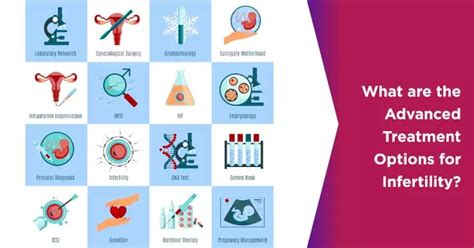The world of fertility treatment has undergone a significant transformation in recent years, thanks to the rapid advancements in In Vitro Fertilization (IVF) technology. IVF, a process where an egg is fertilized with sperm outside the human body, has been a game-changer for individuals and couples struggling with infertility. With the integration of cutting-edge technologies, IVF has become a more efficient, effective, and accessible solution for those seeking to start a family.
Understanding IVF and Its Evolution
IVF has been around for over four decades, with the first successful birth in 1978. Initially, the process was complex, invasive, and often unsuccessful. However, with the advent of new technologies and techniques, IVF has become a more refined and effective method of fertility treatment. Today, IVF is the most common form of assisted reproductive technology (ART) used to treat infertility.

Key IVF Technologies Revolutionizing Fertility Treatment
Several key technologies have contributed to the revolution in IVF, making it a more viable option for individuals and couples struggling with infertility. Some of the most significant advancements include:
- Intracytoplasmic Sperm Injection (ICSI): ICSI involves injecting a single sperm into an egg, increasing the chances of successful fertilization. This technique has been particularly effective for individuals with low sperm count or poor sperm quality.
- Preimplantation Genetic Diagnosis (PGD): PGD allows for the screening of embryos for genetic disorders, reducing the risk of passing on inherited conditions to offspring.
- Time-Lapse Embryo Monitoring: This technology enables continuous monitoring of embryo development, allowing for more accurate selection of viable embryos for transfer.
- Vitrification: Vitrification is a rapid egg freezing technique that preserves eggs for future use, offering more flexibility for individuals and couples undergoing IVF.
- Single Embryo Transfer (SET): SET involves transferring a single embryo during IVF, reducing the risk of multiple pregnancies and associated complications.
The Benefits of IVF Tech
The integration of advanced technologies in IVF has numerous benefits, including:
- Improved Success Rates: IVF tech has significantly improved success rates, with many fertility clinics reporting higher pregnancy and live birth rates.
- Increased Efficiency: New technologies have streamlined the IVF process, reducing the need for multiple procedures and minimizing the risk of complications.
- Enhanced Patient Experience: IVF tech has made the fertility treatment process more comfortable and convenient, with many clinics offering personalized care and support.
- Cost-Effective: While IVF can be expensive, the use of advanced technologies has reduced the overall cost of treatment, making it more accessible to individuals and couples.

The Future of IVF Tech
As IVF tech continues to evolve, we can expect even more exciting developments in the field of fertility treatment. Some potential future advancements include:
- Artificial Intelligence (AI) in IVF: AI may be used to analyze data and predict successful outcomes, allowing for more personalized treatment plans.
- Stem Cell Technology: Stem cells may be used to create artificial sperm or eggs, offering new hope for individuals with infertility.
- Gene Editing: Gene editing technologies, such as CRISPR, may be used to correct genetic disorders in embryos, reducing the risk of inherited conditions.
Conclusion
In conclusion, IVF tech has revolutionized the field of fertility treatment, offering new hope and possibilities for individuals and couples struggling with infertility. With the integration of advanced technologies, IVF has become a more efficient, effective, and accessible solution for those seeking to start a family. As IVF tech continues to evolve, we can expect even more exciting developments in the field of fertility treatment.
We invite you to share your thoughts and experiences with IVF tech in the comments below. If you're considering fertility treatment, we encourage you to consult with a healthcare professional to discuss your options.






What is IVF tech?
+IVF tech refers to the use of advanced technologies in In Vitro Fertilization (IVF) to improve the success rates and efficiency of fertility treatment.
How does IVF tech work?
+IVF tech involves the use of advanced technologies, such as ICSI, PGD, time-lapse embryo monitoring, and vitrification, to improve the chances of successful fertilization and pregnancy.
What are the benefits of IVF tech?
+The benefits of IVF tech include improved success rates, increased efficiency, enhanced patient experience, and cost-effectiveness.
